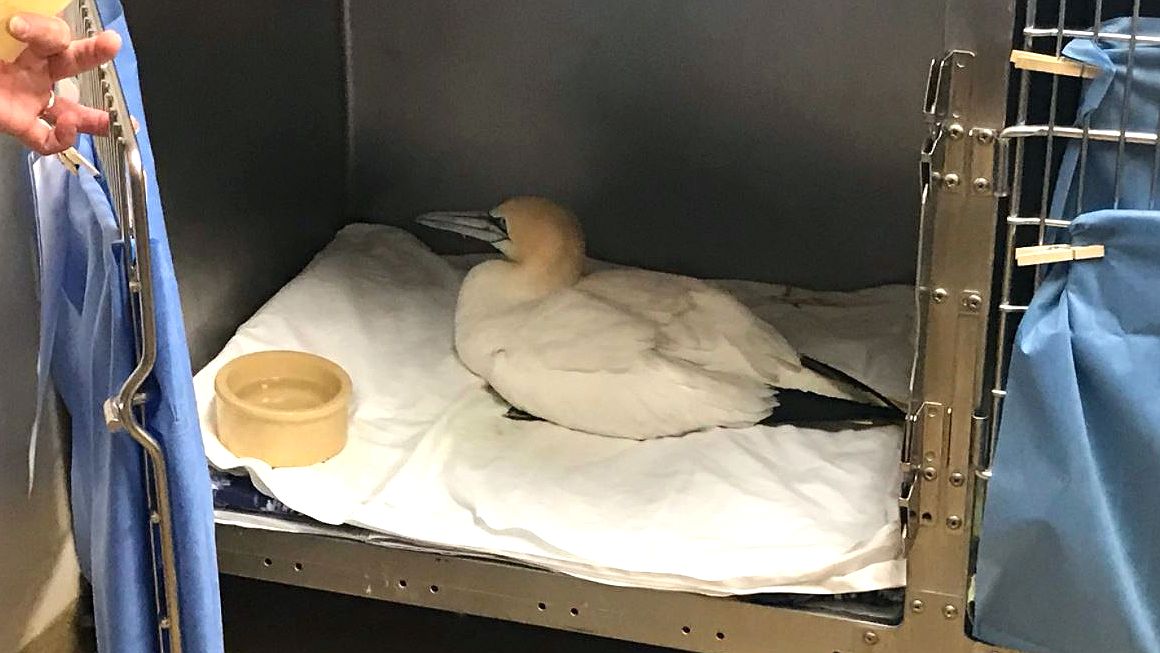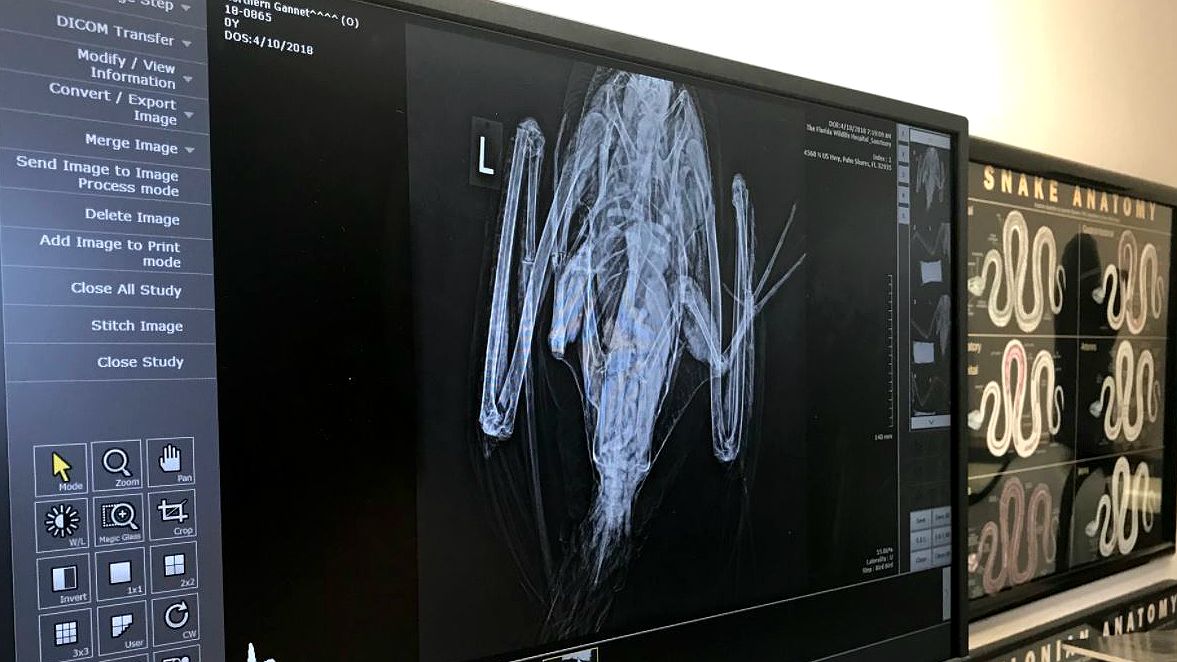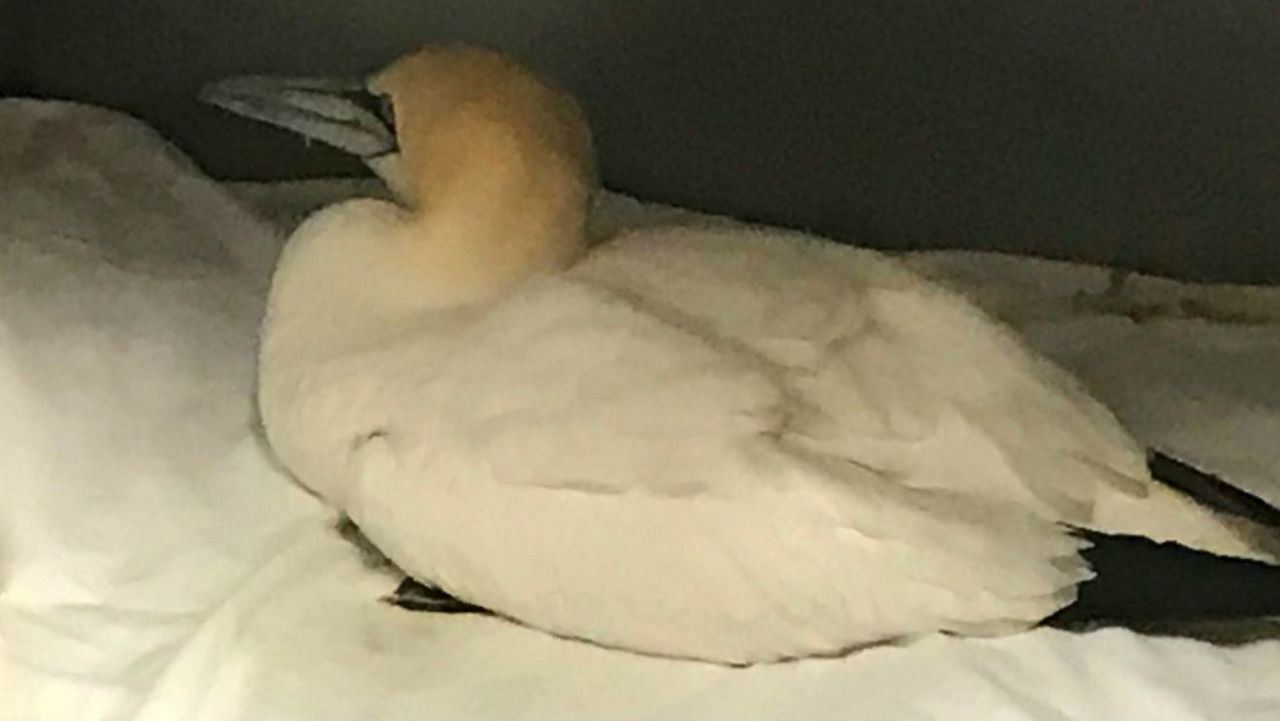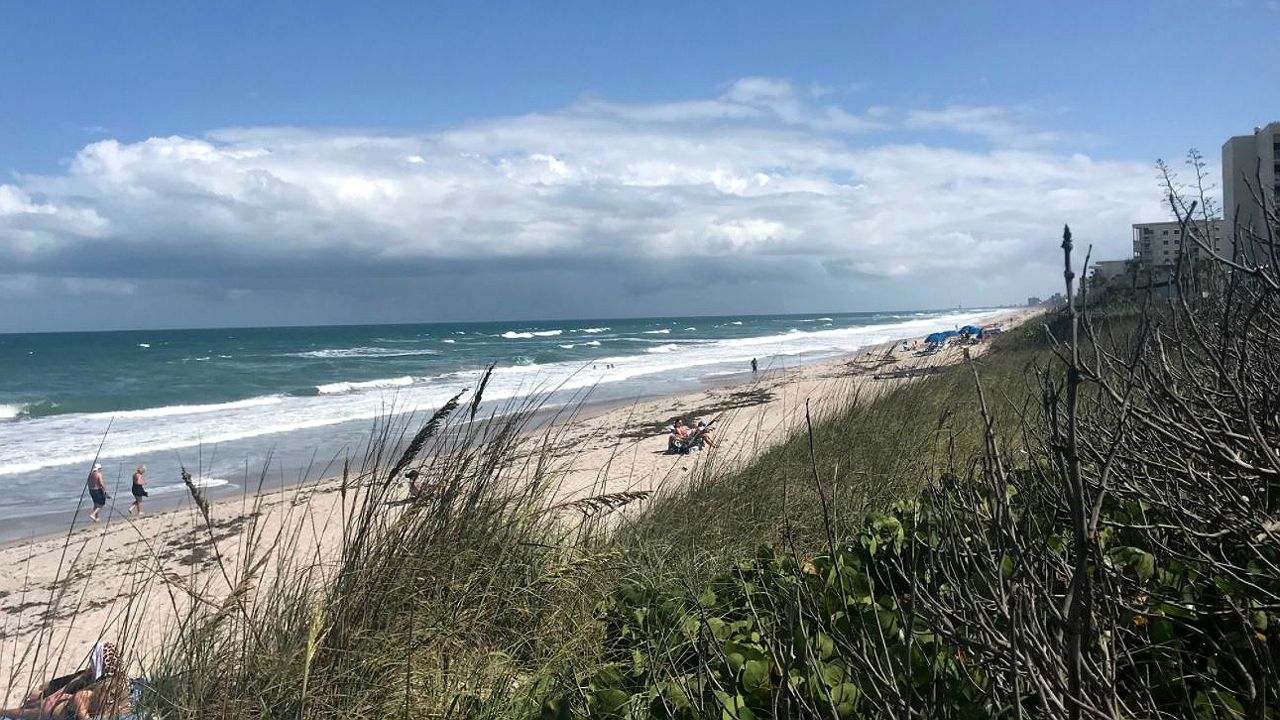MELBOURNE, Fla. — Wildlife experts are trying to solve a mystery on the beach: Why are large migratory birds washing up on Brevard beaches?
And most of them are dying.
- Northern Gannets washing up on Brevard beaches
- The Gannets are emaciated, vets say
- Vets were able to save 3, release them back to ocean
Since March 29, 68 seabirds called Northern Gannets have been brought in for care at the Florida Wildlife Hospital in Melbourne.
Hospital staffers haven't seen a die-off like this in more than 15 years.
"They are washing ashore. They aren't normally seen on beaches," said Tracey Frampton of the Florida Wildlife Hospital. "If they are seen on land, there's something wrong."
These type of migratory birds typically weigh around five pounds and stay strictly out at sea unless they are breeding.
The Gannets are emaciated, many of them so bad that they have lost half their weight.
The workers at the hospital are trying to nurse them back to health, but only a couple have lived.
"We are appreciative of people who do find them, and scoop them up with a blanket, and bring them to us," Frampton said.
People like Lana Fedorova, who lives beach-side near A1A and Eau Gallie Boulevard, spotted one of the struggling birds on the sand last Friday, and called for help.
“At the same time, I saw several birds that were dead," Fedorova said.
Vets were able to save three of the birds and released them back to the ocean Wednesday.
But it's still not known why it's happening.
Florida Wildlife Hospital has sent a couple of the seabirds to FWC for testing, but the results haven't come back.
One possible reason for the die-off is a delayed migration back north due to all the bad weather happening there recently.






